How to store aloe vera extract?
Whether you're a skincare enthusiast or a health-conscious individual, understanding the best practices for storing aloe vera extract is crucial. In this comprehensive guide, we'll explore optimal storage conditions, shelf life considerations, and expert tips to keep your aloe vera extract powder fresh and potent for longer
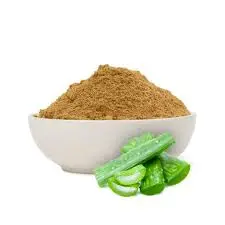
Product Name: Aloe Vera Extract
Appearance: Green brown fine powder
Specification: Aloin 20%,Aloin 10%
Test Method: HPLC
CAS No: 1415-73-2
Particle Size: 80 Mesh
Optimal Conditions to Preserve Aloe Vera Extract
Preserving the integrity of aloe vera extract begins with creating the right environment. The key factors to consider are temperature, light exposure, and container choice.
Temperature plays a vital role in maintaining the extract's quality. Ideally, store your aloe vera extract powder in a cool place, with temperatures ranging between 50°F to 70°F (10°C to 21°C). Excessive heat can accelerate the degradation of active compounds, diminishing the extract's therapeutic properties.
Light exposure is another critical factor. UV rays can break down the beneficial components of aloe vera extract, reducing its efficacy. To protect your extract, opt for dark-colored glass bottles or opaque containers that shield the contents from light.
When it comes to container selection, airtight options are paramount. Glass containers are preferable to plastic, as they don't leach chemicals and provide better protection against environmental factors. Ensure the container is properly sealed to prevent oxidation and contamination.
Humidity control is often overlooked but equally important. Store your aloe vera extract powder in a dry area to prevent moisture from compromising its quality. Avoid bathroom cabinets or other high-humidity spaces that could introduce water into the extract.
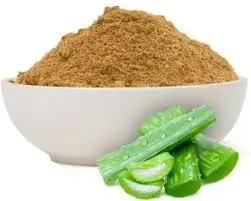
Shelf Life and Signs of Spoilage to Watch For
Understanding the shelf life of aloe vera extract and recognizing signs of spoilage is crucial for maintaining its quality and safety.
Typically, commercially produced aloe vera extract powder has a shelf life of 1-2 years when stored properly. However, homemade or natural extracts may have a shorter lifespan, usually around 6-8 months. Always check the expiration date on commercial products and label homemade extracts with the date of preparation.
Be vigilant for signs of spoilage, which may include:
- Changes in color: Fresh aloe vera extract is usually clear or slightly yellow. If it turns brown or develops an unusual hue, it may have spoiled.
- Odd odors: A rancid or fermented smell indicates that the extract has gone bad.
- Texture changes: If the extract becomes lumpy, excessively thick, or separates, it's time to discard it.
- Mold growth: Any visible mold is a clear sign that the extract is no longer safe to use.
Regular inspections of your aloe vera extract can help you catch these signs early, ensuring you only use fresh, effective product.
Tips for Extending Aloe Vera Extract Freshness
Maximizing the longevity of your aloe vera extract requires a combination of proper storage techniques and mindful usage practices.
One effective strategy is to divide your aloe vera extract into smaller portions. By doing so, you minimize exposure to air and contaminants each time you use the product. Store the bulk of the extract in a larger container and transfer small amounts to a separate bottle for daily use.
Consider refrigeration for extended freshness. While not necessary for all aloe vera extract powder, refrigeration can significantly prolong shelf life, especially for natural or preservative-free varieties. However, always check the product label, as some formulations may not be suitable for cold storage.
Maintain cleanliness when handling the extract. Use clean, dry utensils or droppers to dispense the product, and avoid touching the container's opening with your hands. This precaution minimizes the risk of introducing bacteria that could lead to spoilage.
If you're working with fresh aloe vera gel to create your extract, consider adding natural preservatives like vitamin E or grapefruit seed extract. These can help extend the shelf life of homemade preparations.
Lastly, be mindful of where you store your aloe vera extract powder. Keep it away from direct sunlight, heat sources, and areas with fluctuating temperatures. A stable environment is key to preserving the extract's potency.
FAQ
Q1: Can I freeze aloe vera extract to extend its shelf life?
A: While freezing can extend the shelf life of aloe vera extract, it may alter its texture and potentially affect its efficacy. If you choose to freeze, use small, airtight containers and thaw only what you need. Remember that repeated freezing and thawing can degrade the quality of the extract.
Q2: How long does aloe vera extract last once opened?
A: Once opened, aloe vera extract typically lasts 6-12 months if stored properly. However, this can vary based on the product's formulation and storage conditions. Always check for signs of spoilage before use, regardless of how long it's been open.
Aloe Vera Extract Supplier: Rebecca Bio-Tech
If you're in search of high-purity, industry-leading aloe vera extract for your business, Rebecca Bio-Tech is your premier destination. As a professional enterprise specialized in the R&D, production, and supply of high-purity plant extracts and herbal active ingredients, we take pride in offering our flagship premium aloe vera extract powder, a product rigorously engineered to meet and exceed the highest global industry standards.
Our aloe vera extract powder stands out for its exceptional quality and consistency: it presents as a fine, uniform green-brown powder, ensuring easy integration into various formulations. We provide two core specifications to cater to diverse application needs: 20% Aloin content and 10% Aloin content. Every batch undergoes strict purity and potency testing via the industry-recognized HPLC (High-Performance Liquid Chromatography) method, guaranteeing accurate Aloin quantification and eliminating risks of impurities like pesticides, heavy metals, or artificial additives. Additionally, the powder is highly soluble in water, making it ideal for seamless use in liquid or solid end products.
Why Partner with Rebecca Bio-Tech?
Our reputation as a trusted collaborator stems from an unwavering commitment to quality, innovation, and customer-centricity—traits that make us a preferred choice for businesses worldwide.
- Uncompromising Quality Assurance: We operate a strict quality control system, from selecting premium aloe vera raw materials (sourced from certified, pollution-free plantations) to the final product inspection. This ensures every batch maintains stable potency and purity throughout its shelf life.
- Cutting-Edge Production & R&D: Equipped with state-of-the-art GMP-certified production facilities, we leverage advanced extraction and purification technologies to preserve the active components of aloe vera. Our in-house R&D team also continuously explores new formulations and applications, keeping our products at the forefront of industry trends.
- Global Industry Expertise: We serve as a trusted strategic partner for clients across the pharmaceutical, health supplement, functional beverage, and cosmetic industries—with a presence in Europe, North America, Asia, and beyond. Our team understands the unique regulatory and formulation needs of each sector, enabling us to deliver tailored solutions.
Whether you want to learn more about the technical specifications of our aloe vera extract powder, request a sample, or discuss custom solutions to match your specific product needs, our team is ready to support you.
Please don't hesitate to reach out via email at information@sxrebecca.com.
References
1. Hamman, J.H. (2008). Composition and Applications of Aloe vera Leaf Gel. Molecules, 13(8), 1599–1616.
2. Eshun, K., & He, Q. (2004). Aloe vera: a valuable ingredient for the food, pharmaceutical, and cosmetic industries—a review. Critical Reviews in Food Science and Nutrition, 44(2), 91–96.
3. Surjushe, A., Vasani, R., & Saple, D.G. (2008). Aloe vera: a short review. Indian Journal of Dermatology, 53(4), 163–166.
4. Maan, A.A., Nazir, A., Khan, M.K.I., Ahmad, T., Zia, R., Murid, M., & Abrar, M. (2018). The therapeutic properties and applications of Aloe vera: A review. Journal of Herbal Medicine, 12, 1–10.
5. Sanchez, M., Gonzalez-Burgos, E., Iglesias, I., & Gomez-Serranillos, M.P. (2020). Pharmacological update properties of Aloe vera and its major active constituents. Molecules, 25(6), 1324.
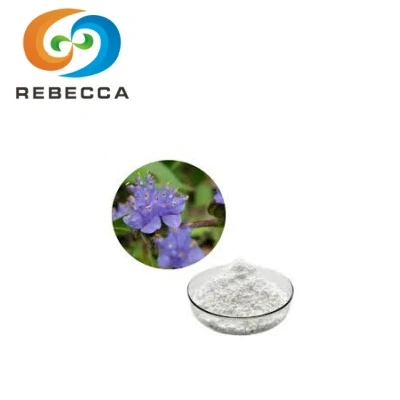
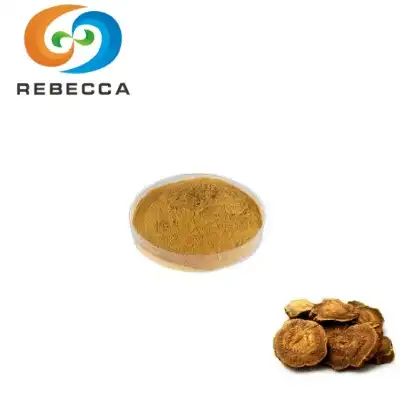
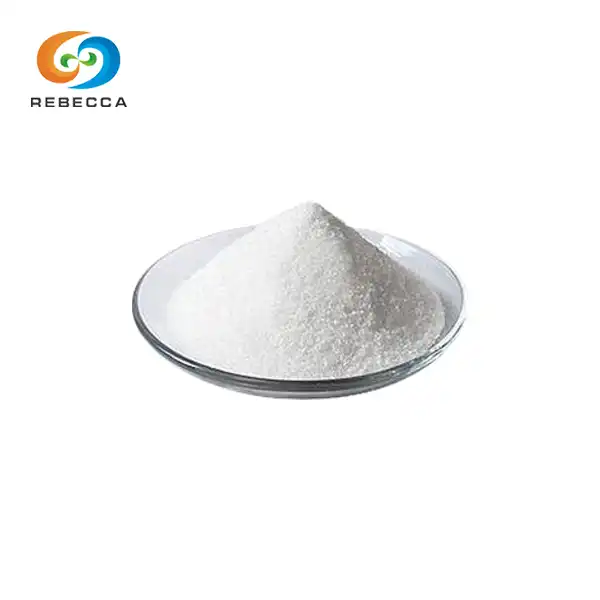
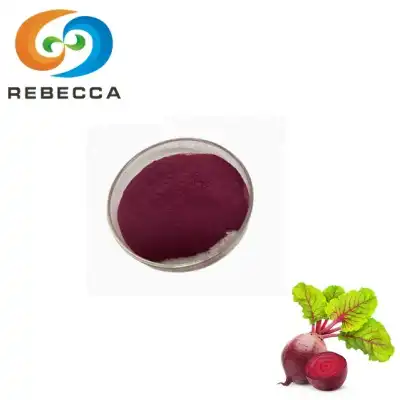

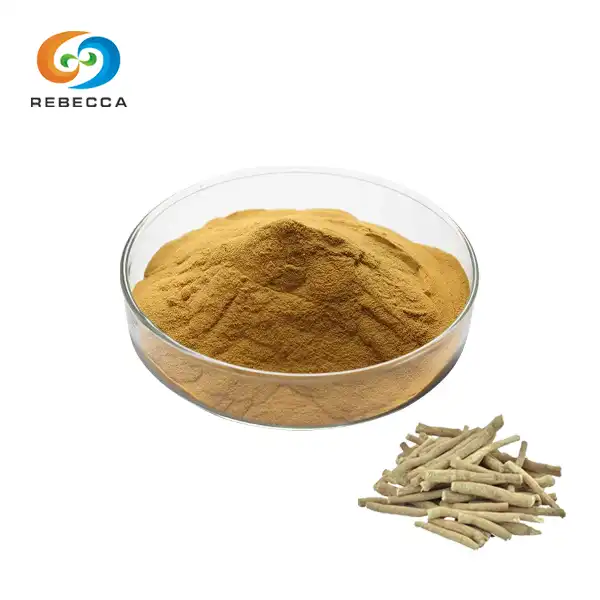
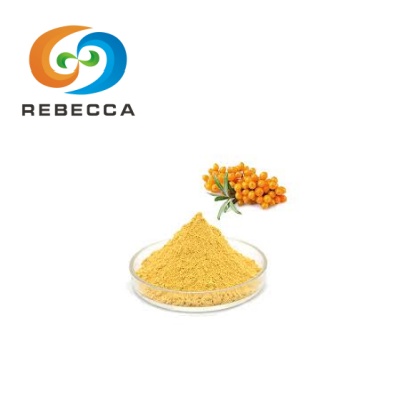
 EXTRACT_1756803389333.jpg)
